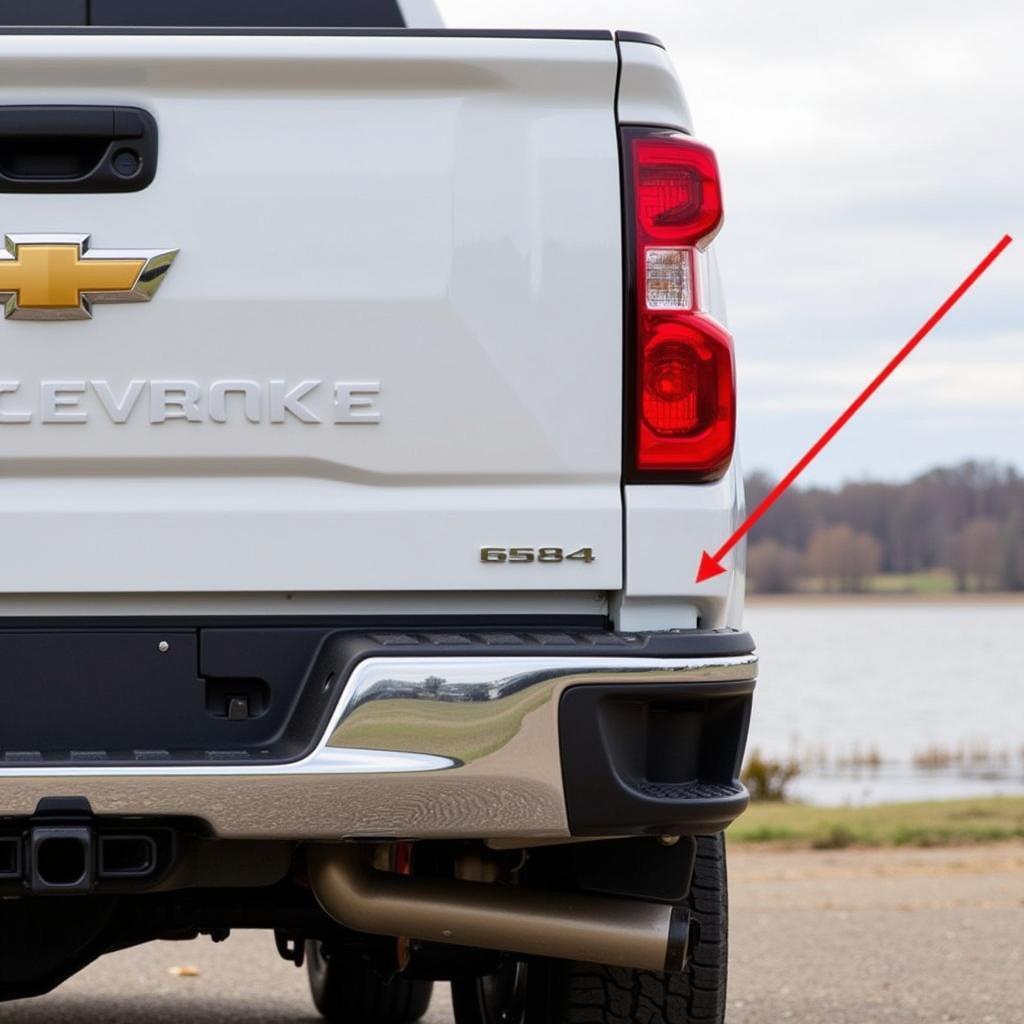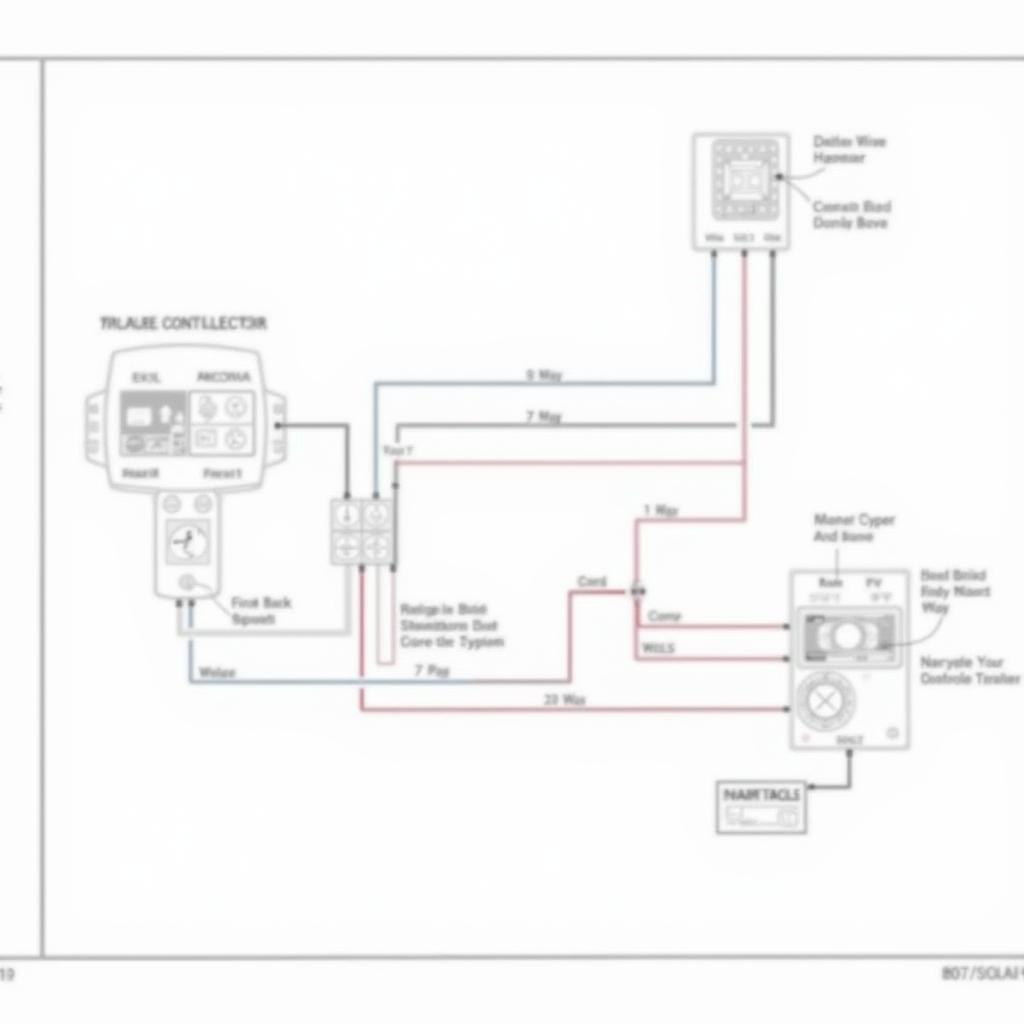If you own a 2001 Jeep Wrangler, you know it’s a rugged and reliable off-road vehicle. However, like any vehicle, it can experience its share of issues. One common problem that 2001 Jeep Wrangler owners face is the brake warning light flashing simultaneously with the ABS light staying on. This can be a disconcerting experience, especially if you’re unsure what’s causing it. This comprehensive guide will delve into the potential causes, troubleshooting steps, and solutions to help you regain your peace of mind.
The brake warning light and ABS light on your dashboard are crucial components of your Jeep Wrangler’s safety systems. When functioning correctly, they alert you to potential issues with your braking system. However, when these lights illuminate simultaneously, it usually signifies a problem that requires your attention.
Let’s explore the common culprits behind this issue:
Potential Causes of a Flashing Brake Warning Light and Illuminated ABS Light
There are several reasons why your 2001 Jeep Wrangler’s brake warning light might be flashing while the ABS light remains on. Here are some of the most frequent causes:
1. Faulty Wheel Speed Sensors
Wheel speed sensors are essential for the proper function of your ABS system. These sensors, located at each wheel, monitor wheel speed and relay this information to the ABS control module. If a sensor malfunctions or becomes dirty or damaged, it can disrupt this communication, leading to a flashing brake warning light and illuminated ABS light.
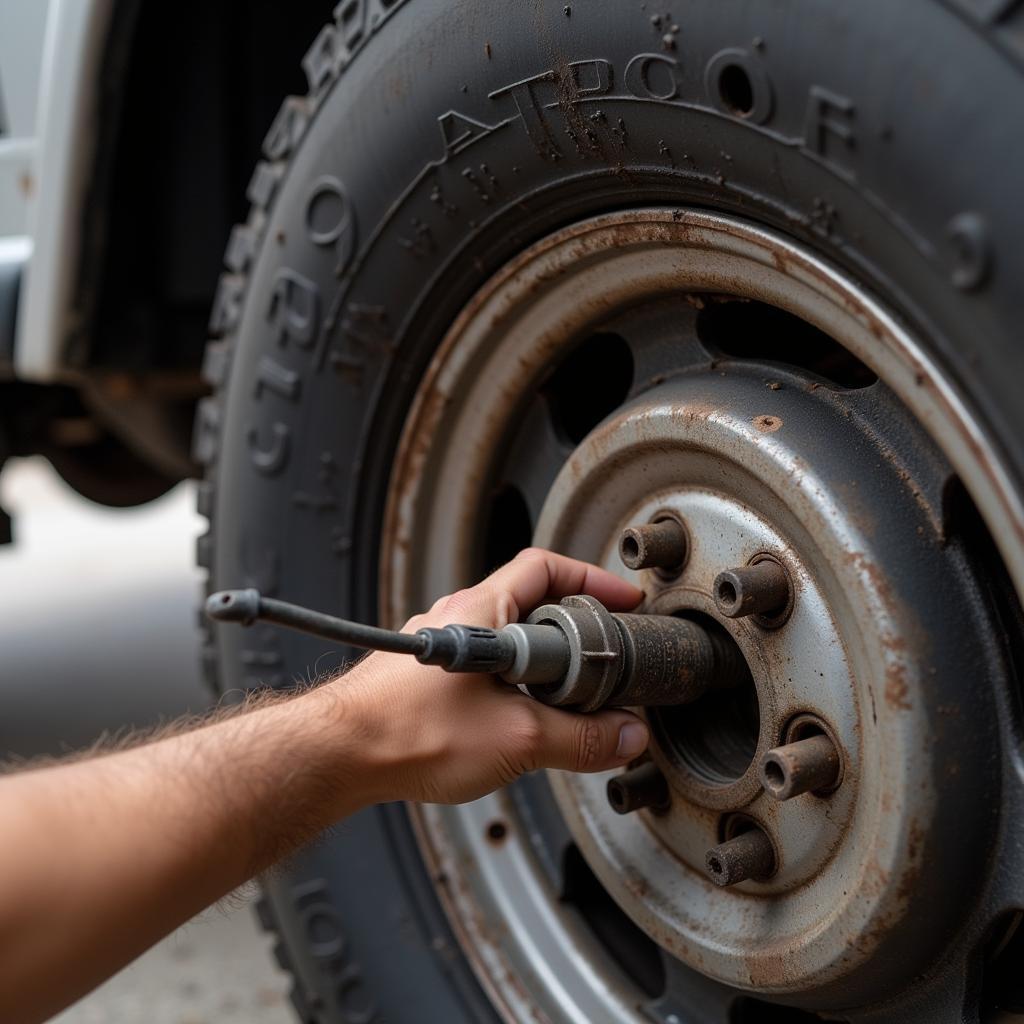 Faulty Wheel Speed Sensor
Faulty Wheel Speed Sensor
2. ABS Control Module Issues
The ABS control module acts as the brain of your anti-lock braking system. It receives signals from the wheel speed sensors and other components to determine when to activate the ABS. A malfunctioning or faulty ABS module can disrupt the entire system’s operation, triggering the warning lights on your dashboard.
3. Low Brake Fluid Level
One of the most common and easily fixable issues is low brake fluid. Your brake system relies on hydraulic pressure to function correctly, and brake fluid is the lifeblood of this system. If the fluid level drops too low, it can cause the brake warning light to flash and the ABS light to illuminate.
Expert Insight: “Always check your brake fluid level if you notice the brake warning light and ABS light on. It’s a simple check that can prevent further damage and ensure your safety,” says Mark Stevenson, a seasoned automotive engineer with over 20 years of experience in vehicle diagnostics.
4. Worn-Out Brake Pads
Brake pads wear down naturally over time due to friction. When they become too thin, it can affect the performance of your braking system and potentially trigger the warning lights.
5. Damaged ABS Wiring
The wiring harness connecting the ABS components, including the sensors and control module, can become damaged over time due to wear and tear, corrosion, or exposure to the elements. A break or short in the wiring can disrupt communication within the ABS, causing the warning lights to activate.
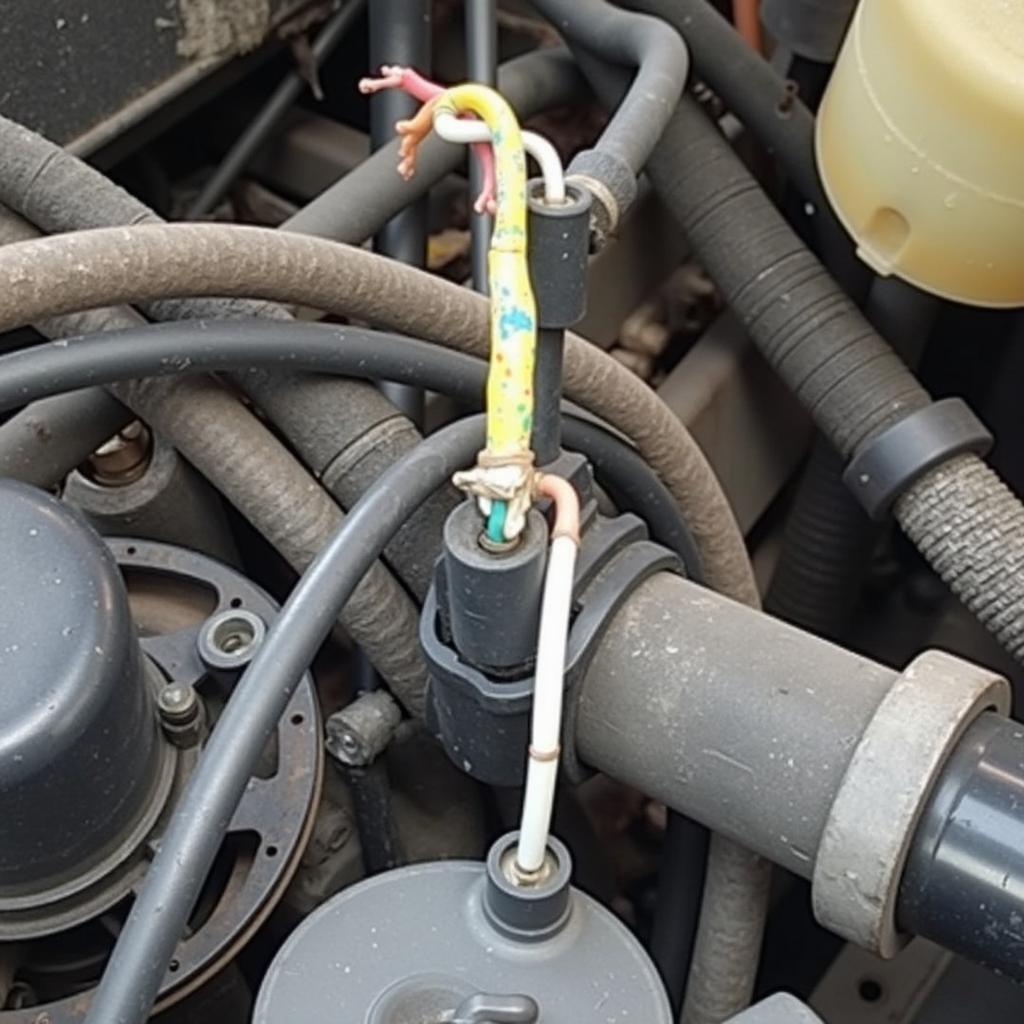 Damaged ABS Wiring Harness
Damaged ABS Wiring Harness
6. Blown ABS Fuse
Your Jeep Wrangler has a dedicated fuse protecting the ABS system. If this fuse blows, it can disrupt the flow of electricity to the ABS components, resulting in a malfunctioning system and illuminated warning lights.
Troubleshooting the Issue
Now that you have a better understanding of the possible causes let’s discuss how to troubleshoot the problem:
1. Check the Brake Fluid Level
This should be your first step. Locate the brake fluid reservoir under the hood of your Jeep Wrangler. The reservoir should have a “Min” and “Max” marking. Ensure the fluid level is between these markings. If it’s low, add the correct type of brake fluid recommended for your 2001 Jeep Wrangler.
2. Inspect the Wheel Speed Sensors
Carefully examine each wheel speed sensor for any signs of damage, dirt, or debris. Clean the sensors if necessary and ensure they are securely connected.
3. Check the ABS Fuse
Locate the ABS fuse in your Jeep Wrangler’s fuse box. Refer to your owner’s manual for the exact location of the fuse. Inspect the fuse for any signs of a blown fuse, such as a broken wire inside. If the fuse is blown, replace it with a new one of the same amperage.
Expert Tip: “When replacing fuses, always use the correct amperage as indicated in your owner’s manual. Using an incorrect fuse can lead to electrical problems and potentially damage your vehicle’s electrical system,” advises Sarah Collins, an experienced automotive electrician.
4. Scan for Diagnostic Trouble Codes (DTCs)
If the problem persists, it’s time to employ a more advanced diagnostic tool: a DTC scanner. Connect the scanner to your Jeep’s OBD (On-Board Diagnostics) port, typically located under the dashboard on the driver’s side. The scanner can retrieve specific trouble codes stored in the vehicle’s computer, providing valuable insights into the root cause of the problem.
Solutions and Repairs
Based on the results of your troubleshooting, you can proceed with the appropriate repairs. Here are some possible solutions:
-
Replace faulty wheel speed sensors: If you’ve determined that one or more wheel speed sensors are faulty, they will need to be replaced.
-
Repair or replace the ABS control module: Issues with the ABS control module are often best addressed by a qualified mechanic. They can diagnose the module’s condition and recommend either repair or replacement.
-
Address low brake fluid: If low brake fluid is the culprit, simply adding brake fluid might temporarily resolve the issue. However, it’s crucial to determine the reason behind the fluid loss. Inspect the brake lines and components for leaks.
-
Replace worn-out brake pads: If your brake pads are worn down, replace them with new ones.
-
Repair damaged ABS wiring: Damaged wiring harnesses require specialized repair or replacement by a qualified mechanic who can ensure proper insulation and connections to prevent future issues.
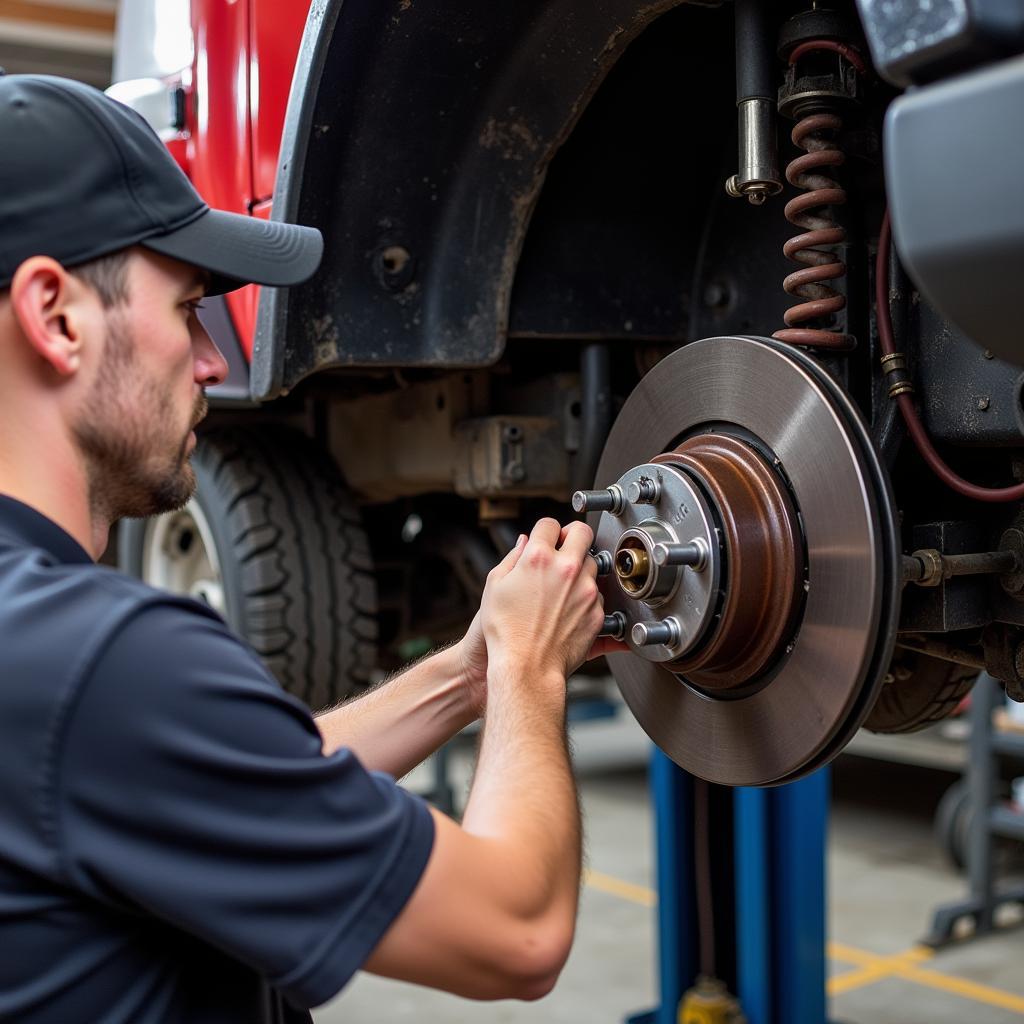 Mechanic Repairing ABS System
Mechanic Repairing ABS System
Conclusion
A flashing brake warning light and an illuminated ABS light on your 2001 Jeep Wrangler should never be ignored. Addressing the issue promptly can prevent further damage and, most importantly, ensure your safety on the road. While some fixes might be straightforward, such as checking the brake fluid or replacing a fuse, others require the expertise of a qualified mechanic.
Remember, your safety is paramount. If you’re unsure about any aspect of diagnosing or repairing your vehicle’s braking system, don’t hesitate to seek professional assistance. Regular maintenance and timely repairs can help keep your 2001 Jeep Wrangler running smoothly and safely for years to come.

